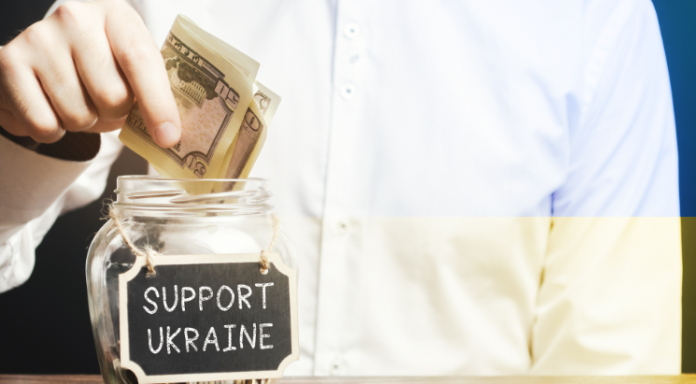Ukraine is nearing the two-year mark since Russia’s invasion of its territory. In the lead-up, Russian President Vladimir Putin provided various explanations for the buildup of troops along the border with Ukraine. However, by the end of February 2022, he authorized a comprehensive military assault.
Over the past few months, Ukrainian President Volodymyr Zelenskyy has pleaded with his allies to increase assistance to his nation, emphasizing the dire need to prevent his military from depleting its ammunition. Recently, the European Union (EU) has given the green light to a substantial aid package. However, achieving this milestone required overcoming a significant obstacle.
The European Union (EU) consented to provide Ukraine with a $54 billion aid package on Thursday, February 1st. Although the agreement had been under negotiation for weeks, it faced obstruction from Hungary’s prime minister.
After European Council President Charles Michel convened an emergency EU summit meeting, the agreement was ultimately achieved. During the summit, discussions took place between Michel and the leaders of the 27-member alliance, resulting in the resolution of the issue.
Certain members jestingly suggested that they would forward their hotel expenses to Hungarian Prime Minister Viktor Orbán, humorously implying that he should foot the bill for their prolonged stay in Brussels until a resolution was reached. Approximately one hour into the meeting, leaders from other nations initiated a well-coordinated pressure tactic, compelling the prime minister to concede and consent to the expenditure.
According to reports, Michel contacted Orbán on Monday and communicated to him that his request for an annual veto over the Ukraine fund would not be accommodated. Additionally, Michel conveyed to the prime minister that certain members were contemplating a proposal to revoke his voting rights altogether.
On Wednesday, Orbán held discussions with Italy’s prime minister, Giorgia Meloni, who shares a close friendship with him and is also known as a staunch right-wing leader. Their meeting took place at a luxurious five-star hotel, where Meloni purportedly persuaded Orbán to cooperate by highlighting the potential benefits for him. It’s been disclosed that Meloni had been actively working behind the scenes for weeks to secure Orbán’s support for the plan.
French President Emmanuel Macron engaged in discussions with the Hungarian prime minister, aiming to persuade him that accepting the deal was the most favorable course of action. Macron has been diligently cultivating a rapport with Orbán over the past few months.
The agreement held significance for multiple reasons. Initially, it would provide vital support to the Ukrainian economy for the next four years, despite the absence of a comparable package from the United States. Secondly, it demonstrated that by applying sufficient pressure on Orbán, who frequently impedes progress on measures, they could still achieve successful outcomes. Fortunately, their endeavors proved fruitful for Ukraine.













